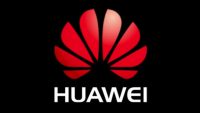Huawei Produces 5G Base Stations, Phones Despite U.S. Ban
October 26, 2020
In anticipation of the Trump administration’s sanctions, Huawei Technologies spent months stockpiling critical radio chips so Chinese carriers could continue to roll out 5G, through at least 2021. In late 2019, its partner Taiwan Semiconductor Manufacturing (TSMC) boosted production of Huawei’s 7nm Tiangang communication chips, used in 5G base stations, shipping more than two million of them ahead of sanctions taking effect. Under these conditions, Huawei unveiled its new Mate 40 series smartphones.
Bloomberg reports that, “Huawei’s breakthrough in securing essential supplies underscores the mixed success of a U.S. campaign against China’s largest tech company since 2018.” The Trump administrations final blow was to ban the sale of “ready-made, commercially available semiconductors,” an act that “finally knee-capped Huawei’s smartphone business and forced it to curtail device production.”

Huawei’s Tiangang chip, which was designed in-house by HiSilicon, “has proven pivotal to keeping the 5G business afloat” and allowed the company to “continue to supply China Mobile, China Telecom and China Unicom” to build out a nationwide 5G network.
Gavekal Dragonomics analyst Dan Wang noted that, “the U.S. has demonstrated an intense will to restrict Huawei’s ability to offer 5G technologies,” which has led to the company becoming “more dependent on domestic sales due to both U.S. pressure as well as its strong hold over the fast-growing China market.”
Huawei began shipping 5G base stations without U.S. components since the end of 2019. With “second-tier components,” the 5G base stations may offer a worse power consumption rate, which Huawei plans to rectify by compensating carriers for “that additional electricity expense.” Depending on a domestic market, Huawei “has so far won more than half of the 5G orders from state-owned carriers this year, securing contracts worth billions of dollars.”
The New York Times reports that Huawei’s new Mate 40 series smartphones are the first “to be released since the Trump administration imposed sharp limits on its ability to buy computer chips anywhere in the world.” In a phone call, TSMC chief executive C.C. Wei “confirmed during a conference call with analysts last week that it was no longer shipping to Huawei.”
Huawei’s head of consumer business Richard Yu revealed that the Mate 40’s main chip is 5nm technology “that only TSMC and Samsung are capable of using at commercial scale.” But Huawei is also restricted from loading its phones with Google apps including its Play store, Gmail and Maps. Although banned in China for some time, Canalys analyst Ben Stanton noted that, “their absence is a big problem in other markets.”
Retailers, he added, are “extremely nervous about whether Huawei will even be in the smartphone game two or three years from now.” “Huawei has to project this image that it is a strong, stable company regardless of what goes on behind the scenes,” said Stanton.

No Comments Yet
You can be the first to comment!
Sorry, comments for this entry are closed at this time.